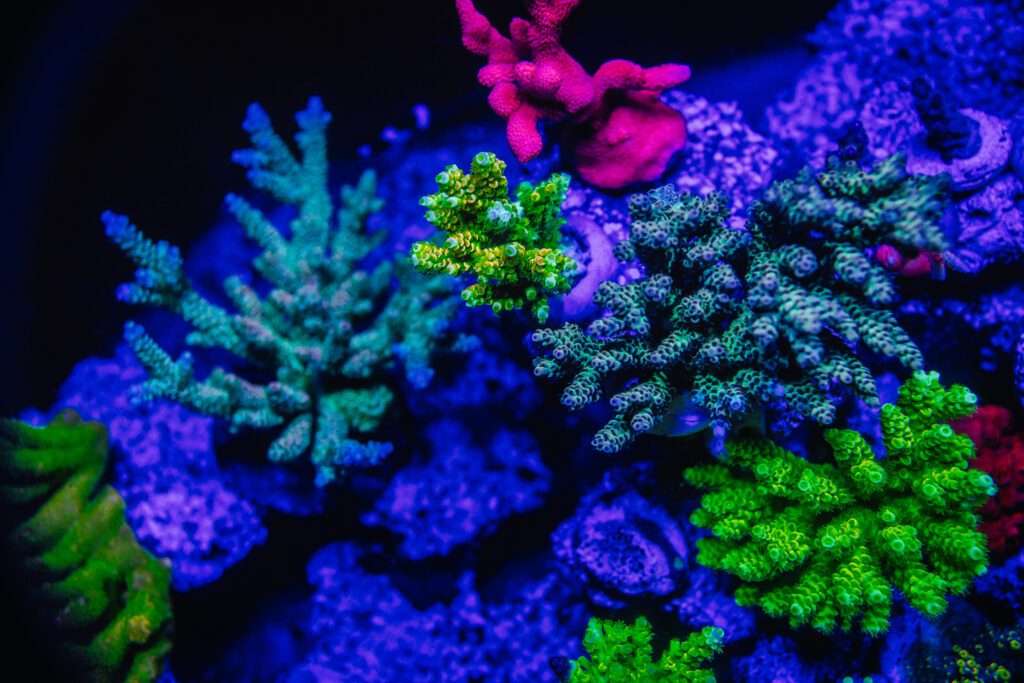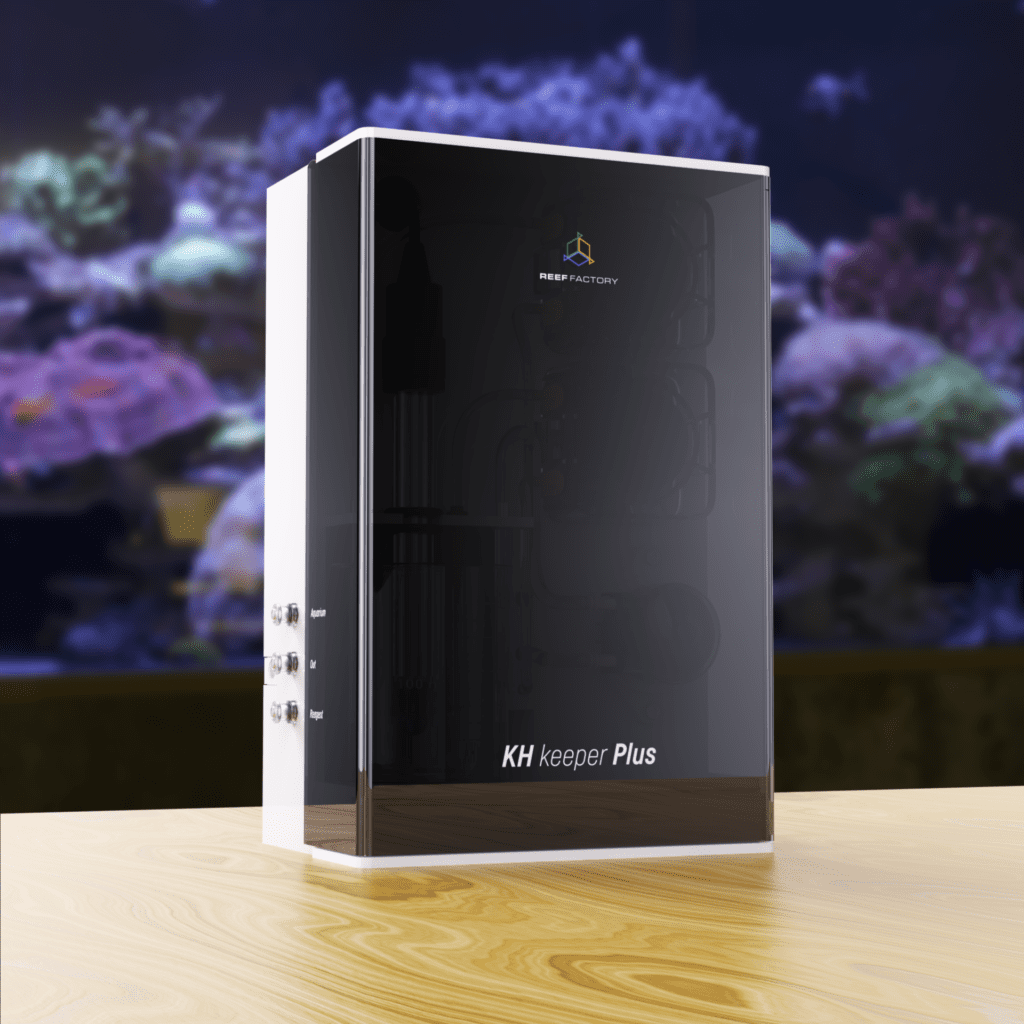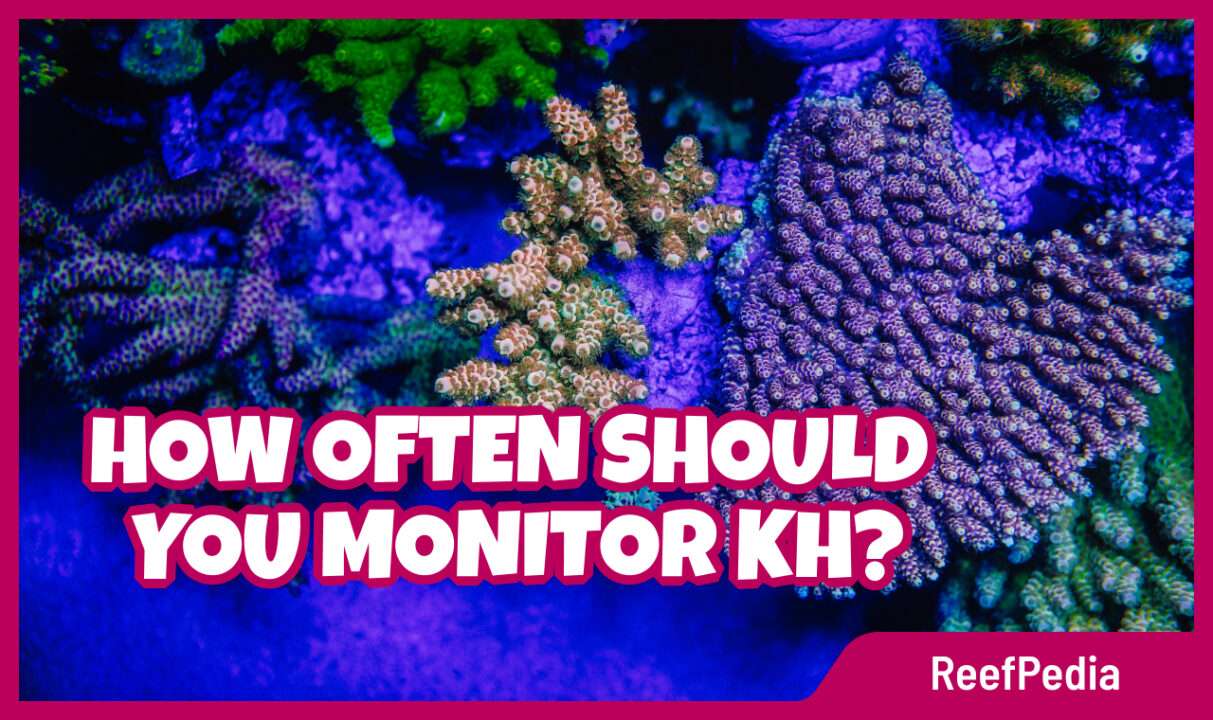Table of Contents
Monitoring KH in a marine aquarium – Introduction
The KH parameter is one of the most important parameters in marine aquaristics. Some marine animals don’t tolerate changes in this parameter well. Corals, especially SPS corals, and some LPS corals, are particularly sensitive to KH fluctuations. Even some soft corals can react negatively to changes in KH levels in a marine aquarium. Rapid changes in KH can cause stress and even death in these animals. On the other hand, maintaining stable KH levels in a marine aquarium is fundamental to ensuring the health, growth and coloration of corals. Therefore, continuous monitoring KH is so important in marine aquaristics
Why is regular monitoring KH so crucial for your aquarium?
- Animal Health: Corals are particularly sensitive to changes in water parameters, including KH fluctuations. Both excessively high and low KH values can lead to various problems for corals.
- Growth and Coloration of Corals: A stable and appropriate KH level supports the calcification process, essential for the growth of coral skeletons. To achieve vibrant coloration in corals, it is crucial to create stable water conditions. Maintaining stable water parameters involves regular testing and appropriate dosing levels.
- Understanding the Water Environment: Regular KH testing provides insight into the state of the marine tank. If KH levels start to drop, it indicates an increase in mineral consumption, signifying coral growth. If KH remains constant without increased dosing, the aquarium is in a state of stagnation. Conversely, if KH levels rise without increased dosing, it suggests that corals are stressed, and the cause needs to be identified and rectified.
How often should you test KH?
The frequency of KH testing depends on several factors, including the type of corals and the coral population size.
Monitoring KH should be carried out according to the following schedule:
- Newly Established Marine Aquariums: In new aquariums where water parameters may still be quite stable (with few or no corals), it is recommended to test KH 1 to 2 times per week.
- Mature Aquariums with Mixed Coral Populations: Test KH 1-2 times daily.
- SPS Aquariums: For tanks with demanding SPS corals, testing should be done every 2-3 hours.

Summary
The key to success in marine aquaristics is maintaining a stable water environment. One of the most critical parameters to keep consistently stable is carbonate hardness (KH). A stable KH level is not only crucial in itself but also reflects the overall condition of the aquarium. Therefore, regular monitoring of KH levels is essential for the health, coloration, and growth of corals. This task can be performed using Smart test kit or automated methods, such as the KH keeper Plus.
About the author

Marek Protasewicz
Reefkeeping has been my passion for over 10 years now. I love learning. The hobby has taught me many valuable lessons, patience being the best example. Combining work and passion is my path. I run Crazy Coral, a marine aquarium shop, for a number of years. Building this business from the scratch I learnt from my own mistakes at a heavy cost.
Later I managed a project aimed at development of methods for quick growth of Corals in non-natural conditions. The project was carried out by Get Sales, Poland. Presently, I am responsible for distribution strategy at Reef Factory, of which I am a co-founder. The company produces smart devices for marine aquaristics. The last projects I have been involved in are Social Reef and ReefPedia.



